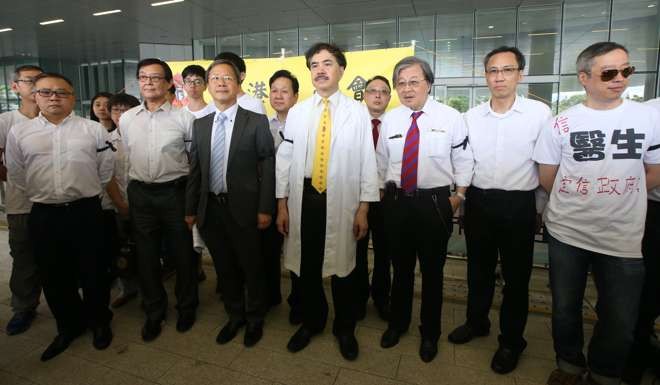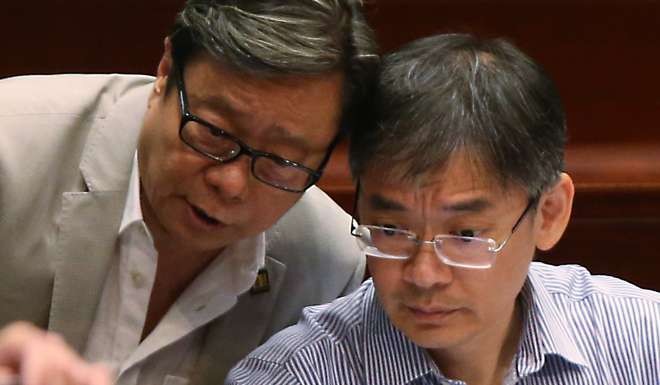
Unfinished business for Hong Kong’s legislators: medical reform
Bernard Chan hopes that the needed and broadly supported reform of the Medical Council, though thwarted at the previous sitting, can find success this time round

Government plans to reform the regulation of doctors came to nothing several months ago after the Medical Registration (Amendment) Bill 2016 failed to get through the Legislative Council.
The aim was to reform the Medical Council, the doctors’ regulatory body. The reforms focused on two main areas. One was increasing the number of members – including non-doctors – on the council, to improve the transparency and efficiency of its complaints and disciplinary procedures. The other was to make it easier for non-locally-trained doctors to practise in Hong Kong.
The measure won support from most lawmakers, patients’ rights groups, the Consumer Council and other commentators. But there was fierce opposition from some doctors, including the medical representative in Legco.
The need for reform is obvious. The slowness of the council’s complaints investigation and disciplinary system has been an issue for years. As of earlier this year, there was a backlog of over 900 cases, and the average complaint was taking 58 months to handle. Things came to a head last year after a young patient’s parents appealed to the High Court. The court criticised the council’s procedures, inadequate support and unclear guidelines.
There have also been doubts about accountability and transparency. Whether justified or not, the fact that there are suspicions that doctors might protect their colleagues means there is a credibility problem. This has to be fixed.

The best remedy is to increase the size of the council and boost the number of lay members. The government’s proposal was to increase the number of members from 28 to 32, and the number of laypeople from four to eight. Membership includes nominees from bodies like the Hospital Authority and medical schools, so the proposal would see the proportion of members directly and indirectly elected by doctors fall from 50 per cent to 44 per cent. But, even after reform, it would leave the profession under weaker government oversight than in many other jurisdictions. For example, the UK’s General Medical Council is all-appointed and consists of 50 per cent lay members and 50 per cent professionals. The proposal also included an increase in the number of laypeople involved in the complaints investigations process.
The bottom line here is that scare stories have defeated the public interest
To many people, the most prominent part of the proposed reforms concerned easing admission of non-locally-trained doctors. Current restrictions are seen as a form of protectionism for locally trained doctors. This issue is directly connected to the shortage of manpower in public hospitals. Many of the overseas trained doctors affected are Hong Kong people.
The government proposed that the limited registration of overseas-trained doctors should be extended from one year to three. The proposals in the bill were on the modest side. We can see this from the fact that many members of the medical profession accepted a need for change, and both pro-government and opposition lawmakers broadly supported the bill.
But some vested interests resist change. The medical sector representative in Legco, and a small number of radical lawmakers, managed to delay the bill, and it never got through its third reading.

One key issue was that lay members would be appointed by the chief executive. Many lawmakers, including the Democratic Party, saw no problem with this. But opponents succeeded in spreading doubts about such members’ independence.
Such tactics also worked where the issue of non-locally-trained doctors was concerned. Opponents claimed the reforms would open the door to less qualified doctors. In particular, they mentioned an “influx” of mainland doctors. This was clearly intended to arouse fears among the public that professional standards were under threat, even though overseas-trained doctors still have to pass local exams. It was also aimed at raising concerns among local medical students that their career prospects would be affected by more competition.
The bottom line here is that scare stories have defeated the public interest. Hopefully, the reforms will pass in the new Legco.
Bernard Chan is a member of the Executive Council